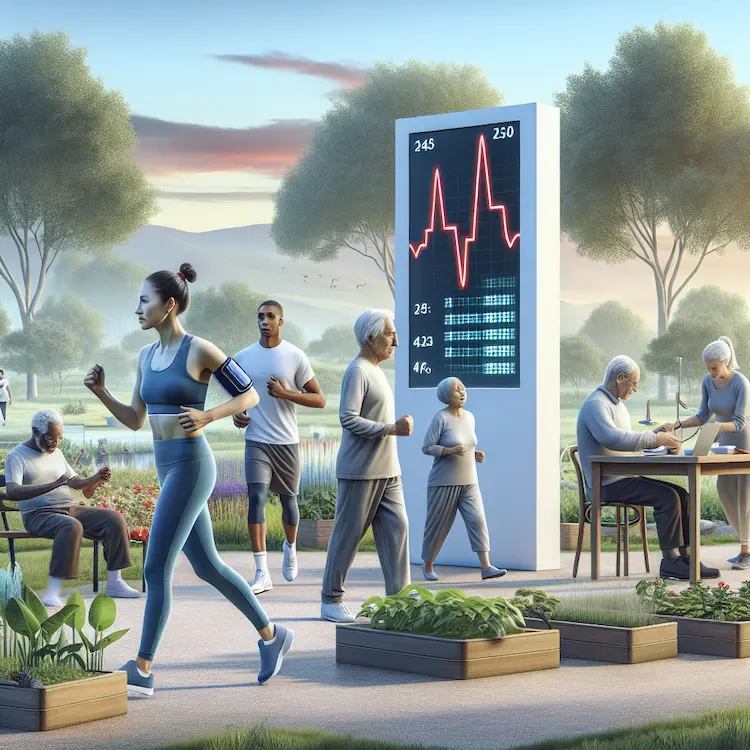May is Blood Pressure Awareness Month, a crucial time dedicated to raising awareness about hypertension and its impact on global health. This annual observance serves as a reminder of the importance of monitoring and managing blood pressure to prevent serious health complications.
Hypertension, commonly known as high blood pressure, is a condition where the force of blood against artery walls is consistently too high. It’s often called the “silent killer” because it typically has no symptoms, yet it can lead to severe health problems if left untreated.
The prevalence of hypertension is staggering:
These statistics underscore the critical need for increased awareness and action to address this widespread health issue.
Blood Pressure Awareness Month plays a vital role in:

Uncontrolled hypertension can lead to several serious health complications:
There are several methods to measure blood pressure, each with its own advantages and considerations:
| Method | Advantages | Considerations |
|---|---|---|
| Office Blood Pressure | Widely available, standard method | May be affected by “white coat syndrome” |
| Home Self Blood Pressure Measurements (SBPM) | Convenient, multiple readings over time | Requires patient training and reliable equipment |
| Ambulatory Blood Pressure Monitoring (ABPM) | Provides 24-hour data, including during sleep | Can be uncomfortable, more expensive |
Research suggests that home SBPM may be the most appropriate method for evaluating residual antihypertensive effect, as it shows better hourly reproducibility compared to ABPM and office measurements.
Preventing and managing hypertension involves a combination of lifestyle changes and, when necessary, medication. Here are some key strategies:
Adopting a heart-healthy diet is crucial in managing blood pressure. The DASH (Dietary Approaches to Stop Hypertension) eating plan is an excellent example:
Engaging in regular physical activity can significantly lower blood pressure. Aim for at least 150 minutes of moderate-intensity aerobic activity per week.
Being overweight or obese increases the risk of hypertension. Losing even a small amount of weight can have a positive impact on blood pressure.
Excessive alcohol intake can raise blood pressure. It’s recommended to limit alcohol to one drink per day for women and up to two drinks per day for men.
Chronic stress can contribute to high blood pressure. Techniques such as meditation, deep breathing exercises, and yoga can help manage stress effectively.
Regular blood pressure checks are essential for early detection and management of hypertension. Home monitoring can be particularly useful in tracking blood pressure over time.

Blood Pressure Awareness Month provides an excellent opportunity for community engagement. Here are some ideas for activities:
Healthcare providers play a crucial role in blood pressure awareness and management:
Blood Pressure Awareness Month serves as a critical reminder of the importance of heart health. By understanding the risks associated with hypertension, adopting healthy lifestyle habits, and regularly monitoring blood pressure, we can significantly reduce the global burden of cardiovascular diseases.
Remember, high blood pressure is largely preventable and manageable. Take charge of your heart health this month and beyond – your future self will thank you.